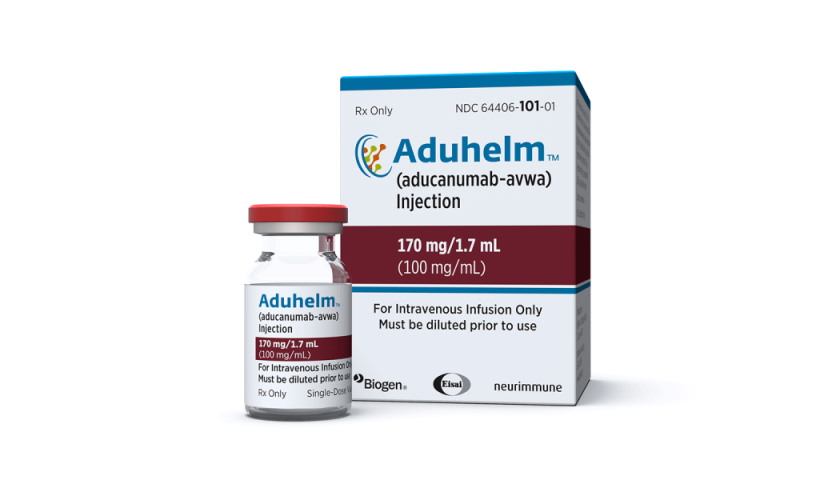Medicare limits Aduhelm coverage to clinical trial participants

Biogen's difficult launch of controversial Alzheimer's therapy Aduhelm has been made even harder by a proposal by Medicare to cover the drug only for certain patients enrolled in clinical trials.
Biogen and partner Eisai had been hoping for good news from the review of Aduhelm (aducanumab) by the Centre for Medicare and Medicaid Services (CMS), but the draft decision means broad coverage of the drug will have to wait for the outcome of ongoing studies before it can hope for broader coverage.
While the decision only applies to reimbursement for patients receiving the drug via the federal healthcare schemes, private insurers may opt to follow the same guidelines, stopping the drug's rollout in its tracks.
It could also mean bad news for other amyloid-targeting therapies hoping to follow aducanumab to market in the near term, including Eli Lilly's donanemab, Roche's gantenerumab, and Biogen/Eisai's follow-up candidate lecanemab.
Lilly has already filed for approval of its candidate, and all three have late-stage trial data due to read out this year.
The CMS' initial verdict came despite Biogen's decision to slash the cost of Aduhelm in half last month to $28,200 a year, acknowledging that it had made a mistake in its initial pricing decision, suggesting that the clinical efficacy and safety data for the drug lies at the heart of the decision.
CMS' decision to go for coverage with evidence development (CED) limits reimbursement of the drug to people with a clinical diagnosis of mild cognitive impairment (MCI) due to Alzheimer's or mild Alzheimer's dementia, and evidence of amyloid plaques, who are enrolled into an approved clinical trial.
That effectively means that Biogen and Eisai will have to start a brand new clinical trial of the drug in order to provide a route for patients to access the drug, in addition to its planned confirmatory study that is scheduled to start in May.
The requirement for proof of plaques is stricter than the FDA's approved indication for Aduhelm, and puts another obstacle in front of the drug, which reported third-quarter sales of just $300,000 for Aduhelm against analysts' estimates of $12 million.
At the time, Biogen said it expected its turnover to be "minimal" until the CMS review concluded, and hold-ups to regulatory approvals in Europe and Japan have only added to the pressure on the drug.
In a statement, the company acknowledged that the proposals – if finalised – will deny "nearly all Medicare beneficiaries from accessing Aduhelm."
The company went on to say "it is imperative to change this draft decision to be aligned with reimbursement for other therapies for progressive diseases, where patients have immediate and equal access to medicines approved by the FDA."
If the final decision continues to require a randomised controlled trial as outlined in the draft, it would likely take more than a year to begin enrolment, further delaying reimbursement for Medicare patients, said the company.
"It is also particularly concerning that this draft implies that some Medicare beneficiaries will receive a placebo instead of a treatment they are seeking," it added.
Biogen has 30 days to submit a formal response to the draft decision, with a final verdict expected in April.












